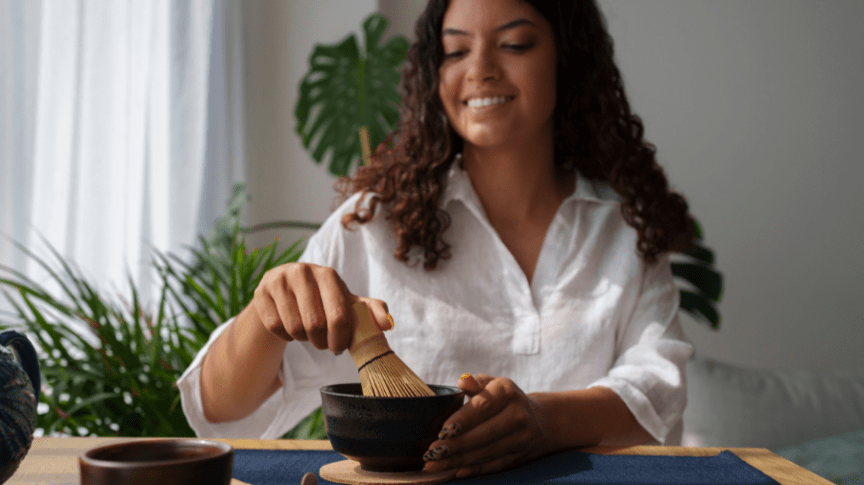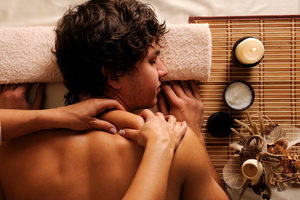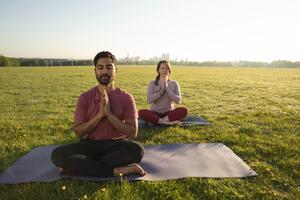Learn why leading HR professionals trust ekincare! Explore Now

Mindfulness has become such a buzzword of late. Have you wondered why?
When was the last time you enjoyed a meal without the distraction of a screen? Or did you take a break where you did nothing and rested your eyes too? When did you last pause enough to observe your surroundings' minor details?
Our modern age is characterized by a constant barrage of stimuli and diversions. So much so that we are rarely fully present in any task we do. So, mindfulness is all the rage today because being in the moment has become a rarity.
But what does this have to do with self-care or healing?
Mindfulness embodies the practice of embracing the present moment with full awareness of our thoughts, sensations, emotions, and environment, free from judgment. Engage in the practice of tuning into the present moment, embracing our experiences, and greeting them with openness and kindness. This helps us develop a deeper understanding of ourselves and how we feel in our bodies.
When you are aware of your body, you notice how different foods and activities make you feel. By practicing mindfulness with our emotions, we develop the ability to identify both our triggers and our sources of comfort. As you learn to be present, you learn to tackle anxiety and stress better, as they result from events from the past and worry about the future.

Whatever you choose to do for your self-care and healing, you will reap very little benefit unless you are doing it mindfully.
Take a massage session, for example. There is a nice massage bed, calming music, and some good fragrance to set the vibe. Picture yourself reclining on your bed, gently shutting your eyes, and feeling the comforting weight of the blankets as your muscles gradually unwind. Imagine getting the same massage done as you are watching a show on your television. The massage is just as good, but your attention is divided between the comforting pressure and the interesting scene playing. In which of these two scenarios will you feel more relaxed and at peace? This is why any of your healing or self-care journeys and practices need to have an element of mindfulness in them.

Consider the numerous advantages associated with cultivating mindfulness:
1) Effectively reduce stress as you become more aware of your stress triggers and responses. This awareness also gives you a space between the triggers and responses, so you can choose your response.
2) Considerably reduce anxiety about the future and rumination about the past, as you are staying more and more in the present.
3) Regulate your emotions without feeling overwhelmed by them as you become a non-judgmental observer of the emotional waves. This allows you to be more kind to yourselves and gives you greater clarity to handle challenging situations.
4) It greatly improves your focus and decision-making on the task at hand, enhancing the overall quality of the work you do and the life you live.
5) Treat yourself with compassion as you understand yourself better, leading to a more positive self-image and improved self-esteem. This boosts your resilience and healing capacity.
6) Improve the quality of your relationships by allowing you to listen more deeply, respond more thoughtfully, and build more meaningful relationships.
Mindfulness isn't a one-time exercise. It's a way of life, and it needs practice. Incorporate various daily activities into your routine to enhance your ability to remain present and mindful of the moment:
1) Mindful Breathing
Dedicate a few minutes daily to center yourself by focusing on your breath. Notice the sensations of breathing in and out, and allow yourself to fully experience each breath. This can help to calm your mind and reduce stress.

2) Body Scan
A body scan is a way of directing attention inward to understand how your body feels. Sit down in a comfortable position and scan each part from head to toe. Pay close attention to each part of your body, noting any tension or discomfort it may be experiencing. Then take a deep breath and allow them to relax.
Food is one of the biggest joys of our lives, yet we choose distraction when we eat. By paying attention to what you are eating - the flavours, textures, and smells - you can enjoy your food better. Over time, you will also become more aware of hunger cues and the effects of different foods on your body.
4) Mindful Movement
Every day, spend some time doing a physical activity mindfully. It could be a brisk evening walk, early morning yoga, or even a martial arts class. Focus on the sensations of the movement and the connection between your body and mind.

5) Environment Scan
While a body scan is focused inward, an environment scan is focused outward. Dedicate a few moments to observing your surroundings with an open mind, devoid of judgment. What sounds are you hearing? How do the wind and your clothes feel on your skin? What are the objects around you and their characteristics? You can do this anywhere, and if you can do it outdoors, it's even better.
Through the practice of mindfulness, one can foster a heightened sense of awareness, acceptance, and empathy over time. In addition to incorporating mindfulness practices into your daily life, utilising resources like ekincare can further support your journey towards self-care and healing. With ekincare, you can easily connect with therapists and mental health professionals who can provide personalised support and guidance.
Integrate mindfulness into your life alongside professional guidance to develop a profound self-awareness, tackle challenges head-on, and embark on a journey toward a richer and more purposeful existence.
Learn how your organisation can get the best employee health and well-being experience with ekincare`s commitment to quality.